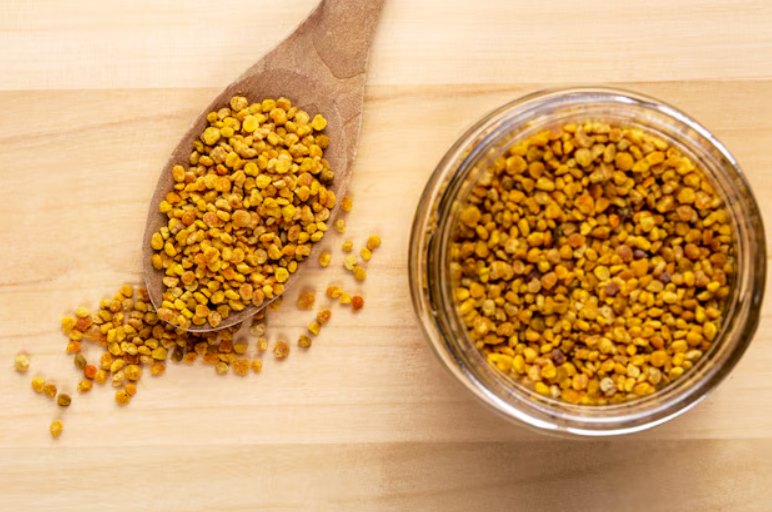The Power of Fenugreek Seeds in Diabetes Management
Understanding Diabetes and Its Impact
Diabetes is a chronic condition that doctors diagnose when high levels of glucose enter the bloodstream. This happens because the body cannot produce enough insulin or use it effectively. There are three main types of diabetes: type 1, type 2, and gestational diabetes. Type 2 diabetes is the most common form, particularly in adults. It often links to lifestyle factors such as obesity and inactivity. It is essential to note that type 2 diabetes often responds well to dietary interventions and lifestyle changes.
The Impact of Diabetes on Health
Diabetes affects more than just blood sugar levels. Chronic high glucose can lead to complications like cardiovascular diseases, nerve damage, kidney dysfunction, and vision problems. Additionally, individuals with diabetes have a higher risk of infections due to a weakened immune response. Managing stable blood glucose levels presents a challenge. It requires balancing dietary choices, physical activity, and medication adherence. Therefore, understanding the factors that influence glucose metabolism is crucial in diabetes management.
Role of Diet in Diabetes Management
The role of diet plays a critical part in effectively managing type 2 diabetes. A balanced diet that includes whole foods, such as fruits, vegetables, whole grains, and lean proteins, contributes to better glycaemic control. People with diabetes often use strategies like carbohydrate counting and monitoring the glycaemic index of foods. These strategies help them manage blood sugar levels. Incorporating natural remedies like fenugreek seeds can further improve insulin sensitivity and glucose tolerance. Comprehensive diabetes management requires collaboration with healthcare professionals, ongoing education, and a commitment to making informed dietary choices.
Nutritional Profile of Fenugreek Seeds
Fenugreek Seeds and Their High Fibre Content
Fenugreek seeds, known for their health benefits, have a rich nutritional profile. This profile plays a vital role in their effectiveness, especially in diabetes management. One of the key features of fenugreek seeds is their high fibre content. Fibre helps moderate blood sugar levels by slowing the digestion and absorption of carbohydrates. This is particularly helpful for individuals with diabetes, as it can prevent spikes in blood sugar after meals.

Essential Vitamins and Minerals in Fenugreek Seeds
Fenugreek seeds also provide essential vitamins and minerals. They are a good source of B vitamins, including folate and niacin. These vitamins are vital for metabolic processes and maintaining energy levels. In addition, fenugreek seeds contain minerals such as magnesium, potassium, and calcium. Magnesium, in particular, has a strong link to improved insulin sensitivity. This makes magnesium a crucial mineral for individuals managing diabetes.
Bioactive Compounds in Fenugreek Seeds
Fenugreek seeds are rich in bioactive compounds, including alkaloids, flavonoids, and saponins. Alkaloids have antioxidant properties that help combat oxidative stress. Oxidative stress tends to increase in diabetes. Flavonoids also contribute to fenugreek’s anti-inflammatory properties. These properties support heart health, which is especially important as diabetes increases the risk of cardiovascular diseases.
Health Benefits of Fenugreek Seeds for Diabetes
Overall, the combination of high fibre, essential vitamins, and bioactive compounds makes fenugreek seeds a valuable addition to the diet. This is particularly true for individuals with diabetes. These nutrients not only help regulate blood sugar levels but also contribute to overall metabolic health. This is why fenugreek seeds are regarded as a natural ally in managing diabetes effectively.
Research on Fenugreek Seeds and Blood Sugar Control
Scientific Evidence Supporting Fenugreek for Diabetes Management
Several scientific studies document the therapeutic effects of fenugreek seeds on blood sugar regulation. The primary active components in fenugreek, such as 4-hydroxyisoleucine and various alkaloids, influence glucose metabolism. These findings have made fenugreek seeds a topic of interest in diabetes research.
Clinical Trials and Fenugreek’s Impact on Blood Glucose
One notable randomised control trial involved diabetic patients who consumed fenugreek seed powder daily for several weeks. The results showed a marked reduction in fasting blood glucose levels, confirming Fenugreek’s efficacy in diabetes management. Participants who consumed the seeds experienced a significant decrease in glycosylated haemoglobin (HbA1c). HbA1c is an important marker for long-term blood sugar control. These findings suggest that Fenugreek seeds may improve insulin sensitivity and overall metabolic health.
Comparison of Whole Seeds vs. Fenugreek Extracts
Other studies have investigated specific dosages and consumption methods, comparing whole seeds with fenugreek extracts. In one study, participants who consumed fenugreek seed extracts daily showed improved insulin sensitivity compared to those who ate whole seeds. This difference is due to the higher concentration of active compounds in the extract form, which may have a more potent effect on blood sugar levels.
Optimal Dosage of Fenugreek for Blood Sugar Control
It is essential to consider how you consume fenugreek when examining its effects on blood glucose control. While both whole seeds and extracts have beneficial effects, extracts may provide a more concentrated source of active ingredients. Current research recommends a daily intake of 5 to 30 grams of fenugreek seeds for optimal results. However, individual needs may vary.
Fenugreeks as a Promising Natural Remedy for Diabetes
As evidence builds on the role of fenugreek seeds in blood sugar management, it is clear that fenugreek offers a promising option for individuals with diabetes. By improving insulin sensitivity and lowering fasting glucose levels, fenugreek seeds can positively contribute to dietary strategies aimed at controlling diabetes effectively.
How to Incorporate Fenugreek Seeds into Your Diet
Simple Methods for Including Fenugreek in Your Diet
Incorporating fenugreek seeds into your diet can be simple and enjoyable. It provides a range of health benefits, particularly for those managing diabetes. Several practical methods exist to include these seeds in your meals, enhancing both their flavour and nutritional profile.

Soaking Fenugreek Seeds for Better Digestion
One effective way to use fenugreek seeds is by soaking them overnight in water. This process makes the seeds easier to digest and releases their beneficial compounds. In the morning, you can consume the soaked seeds directly, add them to smoothies, or mix them into breakfast cereals for a nutritious start to your day. Another option is sprouting the seeds. Sprouting significantly increases their antioxidant properties and overall nutritional value. To sprout, soak the seeds overnight, rinse them, and place them in a jar covered with a breathable cloth. Rinse the seeds twice daily until they sprout. These sprouts can be added to salads or sandwiches for extra crunch and nutrients.
Using Fenugreek as a Spice in Cooking
Using fenugreek as a spice in cooking is one of the most versatile ways to incorporate it into your diet. Ground fenugreek seeds can enhance the flavour of curries, stews, or even baked goods, while also offering health benefits. Consider adding a teaspoon of ground fenugreek to your favourite curry recipes or flatbreads. You can also use fenugreek in seasoning blends to enhance the flavour of dishes without using excessive salt.
Delicious Meal Ideas with Fenugreek Seeds
For a quick and nutritious meal idea, try making fenugreek-infused yoghurt. Simply mix ground fenugreek seeds into yoghurt along with diced cucumbers and spices for a refreshing raita. Another option is fenugreek aloo, where boiled potatoes are sautéed with spices and fenugreek leaves. These meal ideas make it easy to enjoy fenugreek while exploring creative ways to enrich your meals with this beneficial seed.
